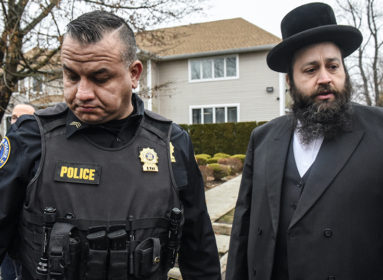To help familiarize the reader with terms commonly associated with Shabbat, we offer this brief – and certainly not all inclusive – glossary.
Kiddush – Kiddush, which literally means “sanctification” in Hebrew, is the blessing recited over a cup of wine or grape juice to sanctify Shabbat or several of the Jewish holidays.
Ha’Motzi – The “Ha’Motzi” prayer is traditionally recited prior to eating bread, or any sort of bread-related food. On Shabbat, it follows Kiddush and the traditional hand washing.
Birkat Hamazon – known in English as the Grace After Meals (lit. “Blessing on Nourishment” is also called “benching” in ‘Yinglish.’ It is a set of Hebrew blessings that are recited after eating a meal that includes bread (whether (leavened or unleavened) made from one or all of wheat, barley, rye, oats, spelt.
Z’mirot – Z’mirot (or z’mirah in the singular form) are simple Jewish liturgical songs, particularly Sabbath songs. While many z’mirot are derived from secular folk melodies set to liturgical texts, any z’miràh worthy of the name has become a folksong in its own right. Z’mirot are sung around the dinner table on Shabbat and holidays.
Shalom Aleichem – Shalom Aleichem is a traditional song sung Friday night at the start of Shabbat, usually as the family sits down to the Shabbat meal, to welcome in the angels said to accompany a person home on the eve of the Sabbath. Composed in the 17th century by Kabbalists in Tzfat, the song is based on a passage in Tractate Shabbat of the Babylonian Talmud (115b). It can be sung to different melodies
The song in Hebrew transliteration is as follows:
”Shalom aleichem malachei ha-shareit malachei elyon, mi-melech malchei ha-melachim Ha-Kadosh Baruch Hu.
Bo’achem le-shalom malachei ha-shalom malachei elyon, mi-melech malchei ha-melachim Ha-Kadosh Baruch Hu.
Barchuni le-shalom malachei ha-shalom malachei elyon, mi-melech malchei ha-melachim Ha-Kadosh Baruch Hu.
Tzeit’chem le-shalom malachei ha-shalom malachei elyon, mi-melech malchei ha-melachim Ha-Kadosh Baruch Hu.’
The words to the song translate:
Peace upon you, ministering angels, messengers of the Most High, of the Supreme King of Kings, the Holy One, blessed be He.
Come in peace, messengers of peace, messengers of the Most High, of the Supreme King of Kings, the Holy One, blessed be He.
Bless me with peace, messengers of peace, messengers of the Most High, of the Supreme King of Kings, the Holy One, blessed be He.
May your departure be in peace, messengers of peace, messengers of the Most High, of the Supreme King of Kings, the Holy One, blessed be He.
Erev Shabbat – Literally “Shabbat evening,” Erev Shabbat is, literally, the eve of the Sabbath. That is, Friday night. Traditionally Erev Shabbat begins with the Kabbalat Shabbat service, followed by the evening Ma’ariv prayers.
Shomer/et Shabbat – One who is observant of some or all of the traditional laws of Shabbat.








 Southern New England Jewish Ledger
Southern New England Jewish Ledger














